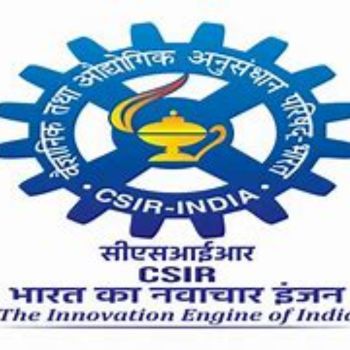A PhD in Sanskrit typically takes 3 - 6 years, depending on the university, research topic, and whether you enrol as a full-time or part-time student. The PhD Sanskrit course offers a thorough study of the Sanskrit Language, Linguistics, and Literature. Applicants with a Master's degree in Sanskrit or a related course with 50% marks can pursue a PhD in Sanskrit. The admission to this course is either merit or entrance exam-based, depending on the college. A few of the PhD Sanskrit colleges include BHU, University of Calcutta, Kurukshetra University, etc.
The graduates have the opportunity to find career opportunities in Educational Institutes, Media and Digital platforms, Computational Linguistics, etc. The students can be employed as a Sanskrit Translator, a Research Scholar, a Manuscript Preservationist, etc. For a fresher, the average PhD Sanskrit salary package ranges between INR 4 and 8 LPA.
Table of Contents
- PhD in Sanskrit Course Highlights
- What is a PhD in Sanskrit?
- Why choose a PhD in Sanskrit?
- Who Should Choose the PhD in Sanskrit?
- PhD in Sanskrit Eligibility
- PhD in Sanskrit Admission Process
- PhD in Sanskrit Entrance Exam
- PhD in Sanskrit Colleges in India
- PhD in Sanskrit Syllabus
- PhD in Sanskrit Job Profiles
- PhD in Sanskrit Future Scope
- PhD in Sanskrit Vs PhD Hindi
- PhD in Sanskrit FAQs
PhD in Sanskrit Course Highlights
Given below are the highlights of the PhD Sanskrit course:
What is a PhD in Sanskrit?
A PhD in Sanskrit is a doctorate program that involves the study of the Sanskrit Language, Linguistics, and Literature.
- It gives scholars an insight into the Sanskrit language and how it can be utilised from an academic perspective in industries such as education, Indian Archaeology, Manuscript Preservation, etc.
- It also helps students who pursue a PhD in Sanskrit to act in administrative sectors as translators and interpreters.
Why choose a PhD in Sanskrit?
Given below are the benefits of choosing a PhD in Sanskrit:
- It enables scholars to learn about Linguistics and Literature of one of the world’s oldest languages.
- It opens paths for researchers to study the ancient usage of language and its delve into Philosophy.
- Due to the decline in the number of students studying this course, there is more scope in professions such as lecturers, translators, and interpreters.
- Great for scholars looking to pursue a DSc in the same field.
Who Should Choose the PhD in Sanskrit?
The Sanskrit PhD course is an ideal option for candidates who want to an advanced research on the Sanskrit language and literature, Sanskrit philosophy, and Sanskrit culture.
- It may suit the practical purposes of people desiring to take up a career in universities as a professor or researcher in studies relating to Sanskrit or as an expert dealing with the conservation, translation, or interpretation of ancient works in Sanskrit.
- It is best for the candidates who have done BA Sanskrit and are also postgraduates, and want an advanced knowledge of Sanskrit.
- This degree is appropriate for those who want to devote themselves to the study of historical and linguistic issues of one of the oldest classical languages, and also give their contribution in preserving cultural heritage, manuscripts, or Sanskrit computational linguistics.
- Secondly, this program would also help candidates willing to be translators, writers, consultants to cultural organizations, or people working in sectors concerning Sanskrit scholarship in the civil services and research centres.
- The PhD promotes intensive scholarly research and critical thinking, research methodology and specialized knowledge in Sanskrit that prepares careers not only in the field of teaching and government but also in publishing and online media.
PhD in Sanskrit Eligibility
To enroll in the Sanskrit PhD course, the candidates need to fulfill the eligibility criteria. Here are the requirements that the candidates need to fulfill.
- The students must have completed an MA in Sanskrit or a related field from a recognised university.
- Entrance exams are conducted by most institutes during PhD Sanskrit admissions. The institutes and their requirements determine the students' selection criteria.
PhD in Sanskrit Admission Process
The PhD Sanskrit admission process varies as per the respective colleges’ selection criteria. For example, the admission process is as given below for the University of Calcutta:
Step 1: Download the application form from the University of Calcutta website.
Step 2: Next, fill out the application form, along with self-attested copies of necessary mark sheets, certificates, and a passport-sized photo.
Step 3: Submit the completed application form and payment receipt at the University Campus.
Step 4: Obtain the admit card and get it stamped by the office after submission of the forms.
Step 5: Appear for the written entrance test (WRET). Candidates having NET/SET/M.Phil need not appear for the written test but must attend the interview.
Step 6: Written test results will be displayed on the notice board of the department.
Step 7: Attend the interview (for all shortlisted and exempted candidates).
Step 8: Wait for the final list of selected candidates, which will be shown on the official website.
PhD in Sanskrit Entrance Exam
Colleges such as the Sanskrit University, Mathura, and RKMVERI conduct entrance tests for PhD Sanskrit admissions. Below is the list of entrance tests for PhD Sanskrit admissions:
PhD in Sanskrit Colleges in India
Given below is a list of PhD Sanskrit colleges along with their location and course fees:
PhD in Sanskrit Syllabus
The course provides in-depth knowledge of the Sanskrit language and its history. Given below is the PhD Sanskrit syllabus at BHU, Varanasi:
PhD in Sanskrit Job Profiles
Given below is an overview of career opportunities and starting salary ranges for professionals post the completion of a PhD in Sanskrit:
PhD in Sanskrit Future Scope
Upon the completion of a PhD in Sanskrit, students can follow the following career paths:
- One can pursue a DSc in Sanskrit for further in-depth knowledge in this field.
- Certification courses such as Computational Linguistics or Sanskrit Journalism can also be pursued for upskilling.
- Some colleges offer post-doctoral research in Sanskrit and related fields that can help with specialisation.
PhD in Sanskrit Vs PhD Hindi
A PhD in Sanskrit focuses on the ancient language, its grammar, literature, ancient manuscripts, and philosophy texts; hence, a perfect degree in India's ancient heritage, religious studies, and traditional knowledge systems. A PhD in Hindi, on the other hand, deals with both modern and medieval Hindi literature, linguistics, and the evolution of the Indian culture, appealing to the needs of a student of conceptualization dealing with current Indian language study and literary criticism.
PhD in Sanskrit FAQs
Are any scholarships granted to students pursuing a PhD in Sanskrit?
Yes, Colleges such as Central Sanskrit University offer scholarships to students pursuing a PhD Sanskrit. Additionally, State Governments as well as NGOs also provide scholarships to students pursuing a PhD Sanskrit.
Can a Sanskrit PhD be done by distance learning?
It is usually not seen that universities offer part-time or distance learning courses in Sanskrit PhD, as it requires constant practical training and research work. You are advised to call up some universities to learn about their respective mode of study.
What is the scope of PhD in Sanskrit?
PhD in Sanskrit has a wide-reaching and exciting horizon, particularly in the fields of academic research, teaching, translation work, content writing, editing and culture preservation. The graduates may be able to work as professors or researchers in universities, translators, editors, authors of novels, or publishing professionals, consultants to the media, cultural organizations, and the government.
How to become a Sanskrit lecturer?
A Sanskrit lecturer is recruited and trained by completing a postgraduate qualification degree in Sanskrit (Master) and, after the postgraduate qualification, qualifying to pursue a PhD to promote at higher levels. Admission to a PhD requires the candidate normally to have passed a national or state-level entrance examination, such as the UGC NET (as an assistant professor) or institutional entrance tests. On completion of the PhD, it is possible to be appointed as a lecturer or assistant professor either in a college or a university.
What is the salary of a Sanskrit professor?
The Sanskrit professor salary depends on both experience and the location, but can average about INR 3 lakh-10 lakh yearly, with an average of INR 6-7.5 lakh yearly. The government or well-known universities which has professors are prone to earn on the high end. Lecturers/ assistant professors' scale can begin and range between INR 3-4 lakh per year.
What is the entrance exam for PhD in Sanskrit?
To be eligible to enroll in the Sanskrit PhD course in a recognized university, the candidates need to appear and qualify for the UGC NET examination. Some universities conduct their own entrance examination for admission into PhD courses.
Can I pursue a PhD in Sanskrit without teaching experience?
Yes, teaching experience is not required for a PhD in Sanskrit, but exposure to Sanskrit research will be beneficial. Research skills and academic qualifications are accorded top priority by most universities in the admission process.
Can people from any field of study in a master's program pursue a PhD in Sanskrit?
No, students from any random discipline cannot pursue a PhD in Sanskrit. They need to have completed their masters from a field relevant to this course, such as Vedic Studies, Linguistics, etc.











